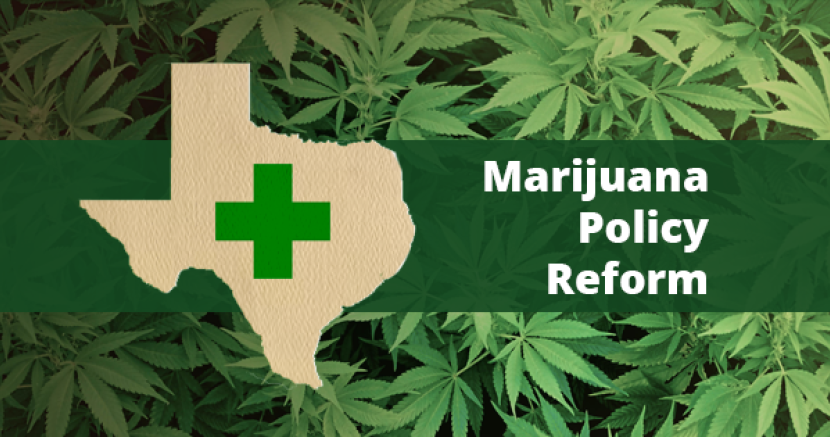For the first time ever, the Texas Legislature had a serious conversation about marijuana policy reform.
Gov. Abbott Signs Texas' First Marijuana Policy Reform Law
On the final day of the Texas Legislature, Gov. Greg Abbott had a special signing ceremony for Senate Bill 339, a limited medical marijuana bill. The legislation allows Texas to manufacture, test, and distribute CBD-oils, an extract of the marijuana plant that only have trace amounts of THC.
The bill is aimed at helping approximately 150,000 Texans suffering from intractable epielpsy. But the way the law was written, many families - if not most - will not benefit.
There are at least three reasons why:
- The law requires a doctor's prescription, instead of a doctor's recommendation. That means doctors could be facing jail time if they prescribe the CBD-oil, since prescribing marijuana requires a Schedule 1 Drug license from the DEA - something most doctors don't have.
- The law is only for those suffering from intractable epilepsy, leaving out countless patients who would benefit from full-scale medical marijuana, including cancer patients and veterans suffering from PTSD.
- Most children suffering from epilepsy need more than just the oil - they need the THC compound. 9-year old Alexis, who became the poster-child for medical marijuana after her family moved her to Colorado from Texas, cannot move back to Texas with this law in place because it falls far short of what she needs.
However, there is hope. Setting up the apparatus for selling the CBD-oil will take until 2017, when the Texas Legislature returns. Our coalition will be meeting with lawmakers throughout the interim to build support for improvements for the law in the months ahead.
Civil Penalty and Full-Scale Medical Marijuana Bills Make Progress
Two late-night hearings on marijuana policy reform that lasted over five hours each underscored just how far the Legislature has come on this issue.
In early April, the House Committee on Criminal Jurisprudence took up House Bill 507 by Rep. Joe Moody (D-El Paso). As many experts and supporters testified that night, Rep. Moody's bill makes a lot of sense. Instead of jailing as many as 70,000 Texans - at a cost of over $700 million to the state every year - police can issue a ticket of up to $250 for anyone caught with one ounce or less of marijuana.
The legislation passed out of the committee, a major accomplishment for a first-time bill. Another, much more advanced bill by Rep. David Simpson (R-Longview) that completely legalized marijuana, also passed out of the same committee. However, time ran out before it could be heard and voted on by the full House.
Another bill, House Bill 3785 by Rep. Marisa Márquez (D-El Paso), was historic for being Texas' first-ever full-scale medical marijuana bill. In late April, the House Public Health committee took up the legislation, hearing from dozens of supporters about the benefits of medical marijuana.
The hearing proved to be an important showcase for dispelling tireless myths about marijuana, and paved the way for the limited medical bill to get out of committee. Our organizations will be working tirelessly in the months ahead to ensure the legislation moves much further in 2017.
We Changed the Conversation - Marijuana Now a Serious Issue
Though the priority bills we fought so hard for didn't pass, the conversation has definitely changed.
Marijuana policy reform has traditionally been considered a fringe issue in Texas. For a decade or more, marijuana decriminalization bills stalled out in committees, sometimes without even a hearing. Democrats and Republicans were scared to even discuss the issue, trapped by severe misunderstandings of drug laws and their impact.
Now, marijuana policy reform is a mainstream issue. It has come out of the shadows and into the spotlight.
That's a testament to what hard work and advocacy, from coalitions and tens of thousands of Texans, can achieve.
In a session where Democrats - and even Republicans - have a lot of reasons to be upset, marijuana policy reform stands out as a shining example of a policy victory, with great reason to hope and remain positive for what's to come.
DONATE
Your donation supports our media and helps us keep it free of ads and paywalls.









